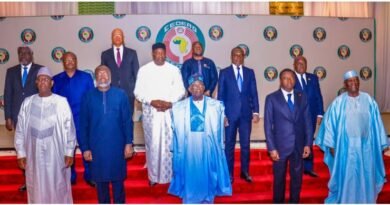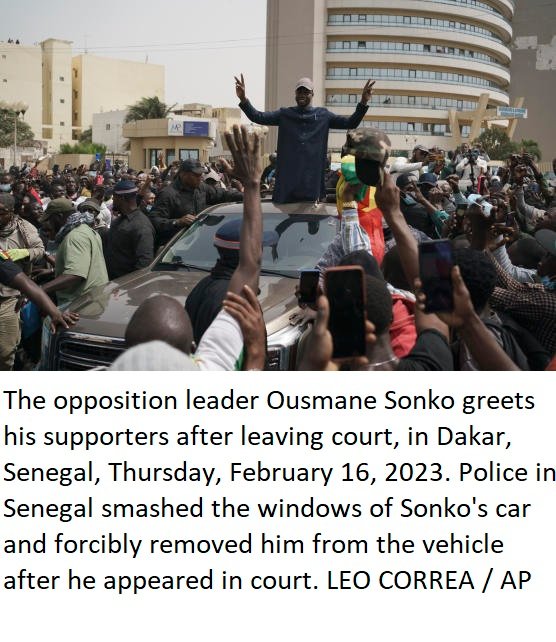THE KENYAN PROTEST AND THE LESSONS THEREFROM-Opinion
By Kennedy Ikantu Peretei
The “7 Days of Rage” protest in Kenya last week, that literally conflagrated the Kenyan political space has become a talking point, not only in Diplomatic circles but also a reference point in leadership and followership template in contemporary African democracies.
President William Ruto of Kenya had proposed a finance bill to Parliament targeted at raising $2.7 billion in additional taxes to reduce the country’s budget deficit and borrowing. A 16% sales tax on bread and 2.5% duty on cooking oil, a new annual tax on vehicle ownership were part of what was contained in the bill. Incidentally, the Kenyan members of parliament passed the bill, but before the President could append his assent, the entire country was already boiling over.

The President in a speech which looked more like an apology at the aftermath of the violent protest that reportedly claimed 22 lives and several others shot, said “It has become evident that members of the public still insist on the need for us to make more concessions. I run a government, but I also lead people, and the people have spoken”. While the sincerity behind this renewed pledge that has put the finance bill at abeyance can only be put to test in the days or weeks to come, it has restored order in the country.
But there is no doubt William Ruto has demonstrated leadership in arresting a situation that was fast becoming a sore thumb on his credentials as a leader of the masses.
Reacting to the developments in Kenya, Prof Femi Mimiko, former Vice-Chancellor of Adekunle Ajasin University, Akungba-Akoko, and a Professor of International Relations, remarked that, “Ruto is one of the most inspiring leaders emerging on the continent. His decision to step back from the Finance Bill is also quite good, and a great concession to democracy. He probably should have communicated more, and certainly more effectively with the citizenry before the protests broke out. I hope Kenyans are putting these whole hullabaloo behind them quickly enough for the task of national development to resume”.
Kenya, with a population of about 51 million persons is undoubtedly the most stable democracy in Eastern Africa. Apart from the 2007 presidential election outcome violence that resulted in the death of more than 1000 persons and another 6,000 displaced, the country has always displayed a high level of maturity during elections. Players also shift loyalties without so much acrimony. For instance, Riala Odinga, a onetime sworn enemy of President Uhuru Kenyentta was his preferred candidate to succeed him in office in the August, 2022 presidential election, against his Deputy, William Ruto. The country also made history in 2018, when the Kenya Supreme Court annulled the Presidential election and called for a fresh election within 60 days.
Perhaps, the Kenya protests were fuelled by a sense of disappointment of the people in their president who before the election preferred to call himself ‘hustler’. Ruto fought a battle with two of Kenyan’s biggest dynasties-Odingas and Kenyattas who he accused of attempting to hold on to power forever. In the build up to the 2022 election, the reason Uhuru Keyentta refused to support his Deputy was that, he said Ruto could no longer be “trusted” and Ruto also retorted by saying Kenyantta wanted install Odinga as a “Puppet”. But Ruto rode on the back of majority of the youth and the poor masses who gave him massive votes, promising to tackle high level unemployment rate and to improve the lives of the less well off. The official results show that Mr Ruto gained ground in the strong holds of Mr Odinga. He also won by a landslide in Mount Kenya-the political heartland of Odinga’s running mate Martha Karua and the former President Uhuru Kenyatta.
On Tuesday, September 13, 2022 when William Ruto was sworn-in as the 55th President of Kenya, at the Kasarani International Stadium, Nairobi, defeating Raila Odinga who got 48.85% of the votes as against Ruto’s 50.5%, he said “a Village Boy” has become President. As a Chicken Farmer and a man who came from a poor background, went to school on bare feet until age 15, Kenyans expected that he was in the best position to understand their suffering instead of complicating their situation with the finance bill. Kenyans who Ruto urged to tighten their belts felt betrayed that, he visited the United States of America in the month of May this year, in a chartered luxury private jet instead of the presidential jet or Kenya’s national carrier. Ruto claimed the luxury jet was paid for by his friends, but the public is still very apprehensive.
The vigilance of Kenyans, especially the youths who used social media platforms to moblise the people for a protest, first in Nairobi and later to other parts of the country is another lesson in followership. The followers should be able to hold their leaders accountable for the use of public funds and policies that spell doom for the existence of the common man. A people that are docile and laidback will always be taken for granted by their leaders. The Kenyan example is a living testimony.
In Nigeria, when President Bola Tinubu assumed office on 29th May, 2023 inflation rate was 22.41%, as at May, 2024 it has climbed to 33.95%. With the removal of fuel subsidy during Tinubu’s inaugural address, prime motor spirit (petrol) immediately moved from N167 per litre to N550 per litre. The product is not even available any longer, where it is available, it sells for about N750 per litre. Most vehicle owners have abandoned their vehicles, because they could no longer afford to buy petrol. Yet, the President, Ministers, Legislators and other high ranking officials of the Nigerian government live in opulence, drive SUVs that cost more than $200,000 per vehicle amidst the hunger and squalor in the land.
We must thumb up for the Kenyan President for listening to his people and celebrate Kenyans, especially the youths for holding their leaders accountable for the use of public funds.





Hey people!!!!!
Good mood and good luck to everyone!!!!!